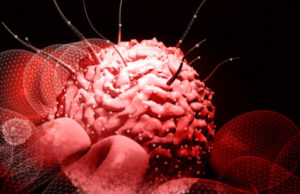Hematopoietic stem cell (HSC) transplants can be life saving for many patients, including those with immune disorders, certain types of cancers, blood disorders, and some genetic conditions. However, HLA-matching for bone marrow HSC transplants can be difficult, and allogenic transplants can lead to graft vs. host disease. Transplantation using cord blood lowers the risk of graft vs. host disease, but the low number of HSCs has limited their use for successful transplants. Researchers at the Stowers Institute for Medical Research have developed a novel method to expand HSCs from cord blood, taking advantage of an RNA-binding protein called YTHDF2. YTHDF2 binds N6-methylated adenosines in mRNAs encoding key transcription factors for HSC self-renewal leading to their degradation. When researchers knocked out the gene for YTHDF2 in mice, HSC expansion increased 14-fold without leading to malignancies. Lentiviral-mediated knockdown of the gene in cultured human cells increased HSC expansion 9-fold and colony-forming units for transplants 5-fold. This novel, reversible method to increase HSCs holds promise for patients awaiting HSC transplants and has the potential for many clinical applications.
Reference:

